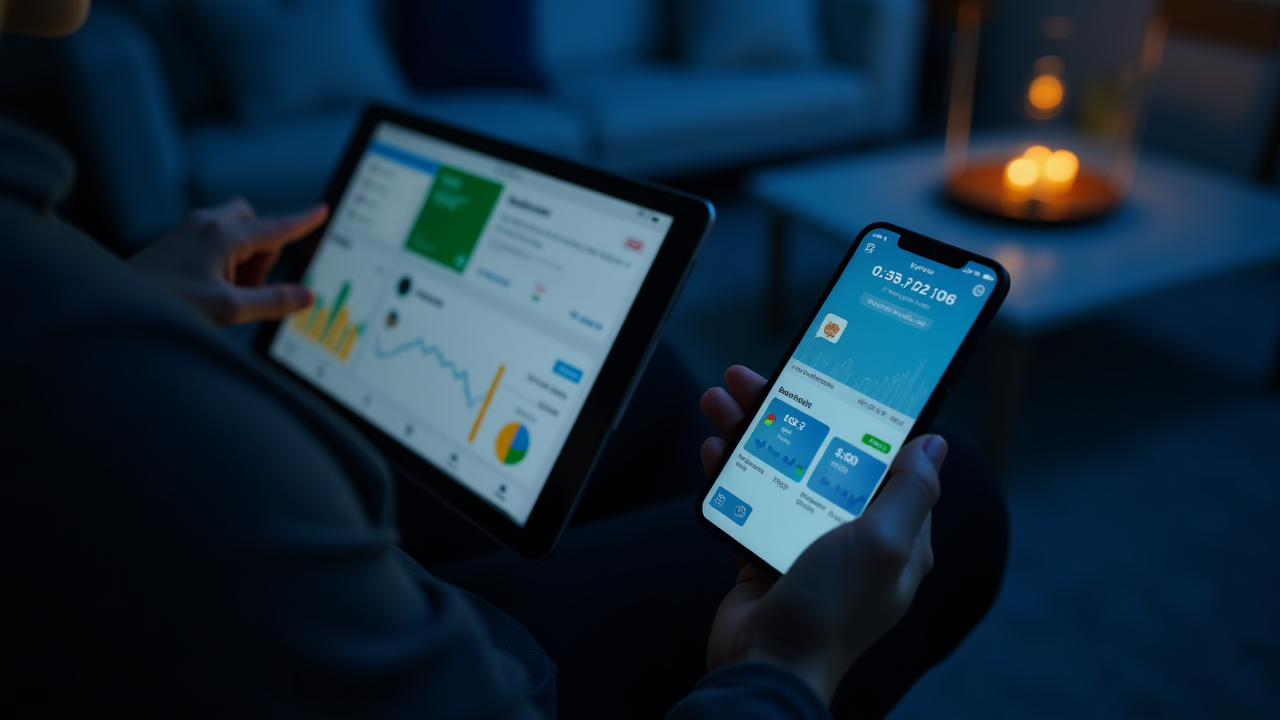Learn practical methods to track income and expenses, create effective budgets, and achieve your financial goals.
Discover MethodsDiscover practical approaches to managing your household finances effectively.
Allocate every rand of your income to specific expenses, savings, or debt payments until you reach zero. This method ensures complete accountability for all funds.

Divide your income into three categories: 50% for necessities, 30% for wants, and 20% for savings and debt repayment. Simple yet effective for balanced money management.

Allocate cash into physical or digital envelopes for different spending categories. When an envelope is empty, you stop spending in that category until next month.
Modern household budget management benefits greatly from digital tools that streamline tracking and analysis. Here are some approaches to consider:
Dedicated applications can automatically categorize transactions, generate reports, and send alerts for unusual spending patterns. Many offer bank synchronization for real-time updates.
Custom spreadsheets offer flexibility and complete control over your budget categories and calculations. Templates are available for different budgeting methods.
Many banks offer built-in budgeting tools within their mobile apps, including spending categorization, goal tracking, and savings automation.

Understanding typical obstacles can help you navigate your financial journey more effectively.
Freelancers, seasonal workers, and commission-based employees often face varying monthly income, making traditional budgeting challenging.
Create a budget based on your minimum monthly income and treat any additional earnings as "extra" to be saved or allocated to specific goals. Consider maintaining a larger emergency fund to cover lean months.
Surprise costs like car repairs, medical bills, or home maintenance can quickly derail even the most carefully planned budget.
Build an emergency fund covering 3-6 months of essential expenses. Additionally, include a "miscellaneous" category in your monthly budget specifically for unexpected costs, and roll over unused amounts.
Unplanned purchases and emotional spending can quickly erode your budget and prevent you from reaching financial goals.
Implement a 24-hour rule for non-essential purchases over a certain amount. Create a specific "fun money" allocation in your budget that you can spend freely without guilt, while maintaining boundaries.
Many people start budgeting enthusiastically but lose momentum after a few months due to the effort required to maintain detailed records.
Simplify your tracking system using automation when possible. Schedule regular "financial check-ins" with yourself or your family to review progress and adjust as needed. Celebrate small wins to stay motivated.

Managing finances as a family requires communication, transparency, and shared responsibility. Here's how to make budgeting a collaborative effort:
Schedule monthly financial discussions where all family members can participate in age-appropriate ways. Review spending, celebrate successes, and address challenges together.
Set both short and long-term goals as a family, such as vacations, home improvements, or education funds. Visualize these goals to keep everyone motivated.
Include children in age-appropriate budgeting discussions and activities. This builds valuable life skills and helps them understand family financial decisions.
Ensure all adult family members have input on major financial decisions, regardless of who earns more. This creates financial harmony and shared ownership.
Adapt your budget throughout the year to account for seasonal expenses and opportunities.
Plan for higher electricity costs from cooling systems, vacation expenses, and children's holiday activities.
Prepare for back-to-school expenses, holiday travel planning, and transitional utility costs.
Account for holiday expenses, heating costs, and potential year-end financial opportunities.
Focus on tax preparation, spring cleaning expenses, and planning for upcoming summer costs.
Expand your knowledge with these recommended resources for household budget management.
By Vicki Robin and Joe Dominguez - Transforming your relationship with money and achieving financial independence.
By Dave Ramsey - A proven plan for financial fitness with practical steps to eliminate debt.
By David Chilton - Common-sense financial planning through an engaging story format.
Comprehensive course covering debt elimination, emergency funds, and wealth building strategies.
University-level introduction to budgeting, saving, and investing principles.
Customizable templates for various budgeting methods, including zero-based and 50/30/20 approaches.
Printable worksheets to manually track daily expenses and identify spending patterns.
Interactive tools to create debt payoff plans using snowball or avalanche methods.
Have questions about implementing these budgeting methods? Contact us for educational guidance on your household finance journey.